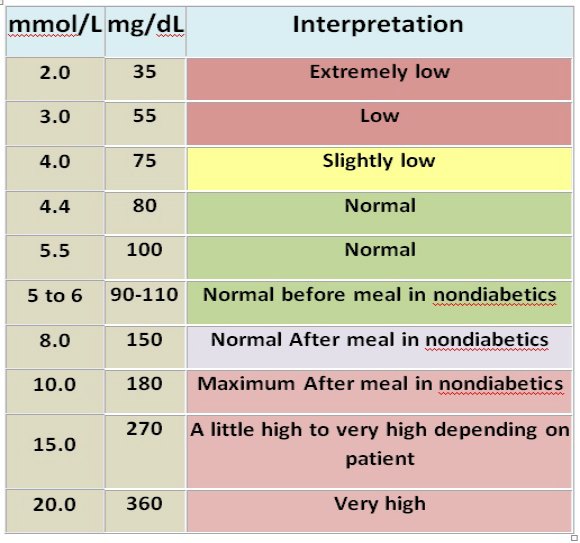Insulin resistance?!

eraser51
Posts: 63 Member
I followed a low carb diet for 2 years now and supressed/reversed(??) my insulin resistance
How can I increase my insulin sensitivity and start again burning carbs?
any advice?
Should I implement starch?
How slowly?
Did someone already experienced this?
Did someone do IF?
How can I increase my insulin sensitivity and start again burning carbs?
any advice?
Should I implement starch?
How slowly?
Did someone already experienced this?
Did someone do IF?
0
Replies
-
bump0
-
bump
0 -
I'm curious about this. I have IR too, but my approach has been to go for the 30g limit of starchy/sugar per eating occasion and eating it always with fat and protein.0
-
I was insulin resistant for ten years, then type 2 for another ten years, before putting it in to remission through bariatric surgery. My latest two A1C were at 6.
I have always eaten a balanced plate including carbs.
From my personal experience, you can slow carb absorption by including fat, fiber, and protein in to the meal. Of course, always watch your portions. Vinegar, such as salt-and-vinegar chips or salad dressing, also slows down absorption.0 -
This content has been removed.
-
Exercise (lifting weights & high intensity sprints especially) and fasting are going to give you the most benefit but here's a list of 25 things that improve insulin sensitivity. Exercise (and a reasonable carb count) is key though -- please don't meditate, drink tea etc. and think that's enough.0
-
Has your sensitivity changed recently?0
-
Increasing lean muscle mass is probably the best way. Adipose tissue aka fat doesn't respond as well to insulin. Also, 15-30 min of light aerobics or resistance training following meals can help blunt post-prandial glucose spikes. Adopting a high protein/fat and low carb diet helps but only so much as your liver will continue making sugar via glycogenolysis and gluconeogenesis unless your carbs become low enough to throw you into ketogenesis0
-
http://caloriesproper.com/insulin-resistance/ has some interesting reading. An HbA1c of 6 doesn't look good.
Two days a week of calorie restriction did better for insulin resistance than continuous restriction in http://www.ncbi.nlm.nih.gov/pmc/articles/PMC3017674/table/T4/ which may support an IF approach.
The Atkins "carb ladder" approach might be worth a look - http://www.controlcarb.com/ccn-lifestyle.htm (scroll down) or http://www.atkins.com/how-it-works/library/articles/reach-your-goal-by-climbing-the-carb-ladder0 -
I've done IF and lots of brisk, hilly walking. Fiber too. It has improved IR considerably. I can now have a meal of white carbs like rice without falling asleep immediately or go into hypoglycemia.
Intense cardio helps deplete liver, and to some extent muscle, glycogen. Heavy lifting is good for muscle glycogen expenditure. IMO exercise is key component for my success. Fasting is a good add-on.
There's lots of info on how to improve insulin sensitivity. Reading this guy's blog helped me a lot: https://intensivedietarymanagement.com
He also has a very informative youtube channel.
Good luck 0
0 -
Tagging.0
-
This content has been removed.
-
I would recommend IF combined with LCHF, striving to stay in ketosis. You can't going to help your metabolism / insulin resistance by going back to carbs.0
-
I followed a low carb diet for 2 years now and supressed/reversed(??) my insulin resistance
How can I increase my insulin sensitivity and start again burning carbs?
any advice?
Should I implement starch?
How slowly?
Did someone already experienced this?
Did someone do IF?
So you used to be insulin resistant but are not any more. Yet you are asking how to become less insulin resistant... which you have already done.
Maybe you should clarify.0 -
I don't understand the question I guess.
Insulin resistance is most often caused by obesity and inactivity. If you've reversed your IR, keep doing what you're doing. If you want to add more carbs into your diet, do that. Carbs won't cause your IR to come back.
I reversed mine by losing 75 pounds and getting active. I have a moderate carb intake. All I need to do now is stay active and not become obese again.0 -
@yarwell , what's wrong with an A1C of 6? My medical team is very pleased.
@midwester85, I took the OP to mean they want to start adding carbohydrates (starch) back in to the diet without blowing their sugar numbers.0 -
The only reason an low A1c would/could/should cause concern is if you're having hypoglycemic issues. If you aren't, you're good to go. If you are having issues that's something to address.
Most people who haven't had type 2 diabetes and reversed it don't understand that.0 -
@jgnatca I get the sense that OP believes he is no longer type 2 / insulin resistant based on good BG's (blood glucose), but then if he eats carbs, his BG's skyrocket and don't come down. If that is the case, he is wrong... he is still insulin resistant. In such case, he needs to lose weight.
If he eats carbs and his BG's do NOT go up and stay high for a prolonged period of time (several hours), then he is right in that he is no longer insulin resistant. In such case, he can eat carbs like anyone else.
Of course, these are very simplistic answers based on assumptions about what OP means. Of course OP should ask his endocrinologist about this, as s/he would know his current status and history.
*Also, as a double diabetic (i.e. I have both type 1 and type 2) who has more training than most GP's about diabetes, I definitely support that 6% is an acceptable A1C. Whomever says 6% is too high clearly does not know what they are talking about.0 -
@jgnatca - they were worried the A1c was too low at 6...0
-
Hm. The article posted above (caloriesproper.com) is an opinion piece, demonising carbs again.
A1C of 6 is very good. It relates fairly closely to the mmol/l measurements used in Canada. I believe Americans use mg/dl, which are shocking to me until I remember to do the conversion. 0
0 -
Hm. The article posted above (caloriesproper.com) is an opinion piece, demonising carbs again.
A1C of 6 is very good. It relates fairly closely to the mmol/l measurements used in Canada. I believe Americans use mg/dl, which are shocking to me until I remember to do the conversion.
OK, but the chart you included is not A1C; it is BG. Also, I take exception to the numbers. I've read a lot of studies over the years and 180 as a maximum for non-diabetics after meal does not comport to what I would expect. At minimum, it needs definition for "after meal." If you test a group of non-diabetics 30 min. after they eat a bowl of oatmeal, for example, I expect most of them will be higher than 180. Test them 90 min. after eating and I can agree that 180 is going to be on the high end.0 -
0
-
I am trained here in Canada to count "after meal" as two hours after a meal.0
-
@jgnatca It is because they were looking at a chart on the caloriesproper.com article, made an assumption based on the chart (the assumption has nothing to do with the contents of the chart), then applied the assumption to a much broader question. And... they had no other relevant knowledge to tell them that their conclusion didn't make sense.
Two hours post-meal is enough time for a postprandial spike to have come and gone in non-diabetics. This is why it is usually used for post-meal BG tests. It just seems like the chart could have easily clarified this for users who don't know.0 -
I imagine diabetic newbies could give themselves quite a scare testing right after a meal....0
This discussion has been closed.
Categories
- All Categories
- 1.4M Health, Wellness and Goals
- 397K Introduce Yourself
- 44.2K Getting Started
- 260.9K Health and Weight Loss
- 176.3K Food and Nutrition
- 47.6K Recipes
- 232.8K Fitness and Exercise
- 456 Sleep, Mindfulness and Overall Wellness
- 6.5K Goal: Maintaining Weight
- 8.7K Goal: Gaining Weight and Body Building
- 153.3K Motivation and Support
- 8.3K Challenges
- 1.3K Debate Club
- 96.5K Chit-Chat
- 2.6K Fun and Games
- 4.5K MyFitnessPal Information
- 16 News and Announcements
- 18 MyFitnessPal Academy
- 1.4K Feature Suggestions and Ideas
- 3.1K MyFitnessPal Tech Support Questions












